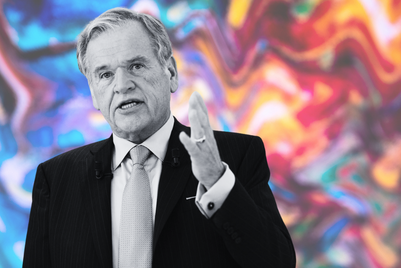
Brand equity is nomenclature rooted in the 20th century, before social media acquired its disproportionate clout to build or destroy brands. It’s time we looked beyond equity to a wider, more inclusive term that will capture the attitude of the ‘concerned, aware and activist’ consumer better: ‘Brand reputation’.
It’s more holistic: From the current practice where communication is thought to be sole driver of building a brand’s equity, we now understand that there are many more factors that are at work which determine the brand’s value (or its ‘reputation’). Many of these cannot be fully controlled, merely influenced. We need to be more cognizant of these ‘drivers’.
Growing power of internet and media: Digital and social media have acknowledged the importance of reputation to brands with tools like Online Reputation Management. PR agencies are already looking at reputational damage and strategy. If they haven’t already, mainstream brand managers better start acknowledging this.
Real time feedback and reactions as determinants of brand preference: From the call centre, retail network, relationship managers and appellate authorities to social media, subscribers react to service brands. Brands’ responsiveness to this feedback will indicate their seriousness to the growing clout of consumers. In the era of declining credibility of advertising and growing power of w-o-m, brands will ignore the voice of consumers at their own peril.
A brand is impacted by ‘ambient noise’: What the government, media, consumer activists and domain experts are saying about it and the category, says a lot more sometimes about many brands than what the brand says about itself via advertising. Telecom is a case in point.
Recognise the importance of how the company acts and behaves: Large numbers of consumers are concerned with the company’s attitude towards the community and the country, with brand preferences increasingly being built or influenced through these metrics. Critical issues of increasing concern are the company’s commitment to sustainability, environment, CSR, ethical and governance inclination. There is a new phenomenon of aware and concerned citizens wanting to buy into brands which are good corporate citizens, which give back to society and are seen as philanthropic; as opposed to those who are selfish, uncaring and ruthlessly profit-seeking.
Mere communication cannot build equity any longer: Touch points of the customer service delivery department are a critical determinant of the brand’s reputation as are several other moments of truth pre and post sales. Reputation is therefore the sum total of how the brand and the company behaves and how the consumer and citizens respond to it on various dimensions, not simply its communication.
What the consuming public takes in is the gestalt of the brand’s public behavior: Your prospect consumes all that you are saying and doing, and a whole lot more. Besides the formal communication via media, and other channels, there is also so much of media noise and public chatter which helps develop the consumer’s choice architecture.
Trend of consumer activism: Today’s brand custodians should recognize that consumers want to play a larger role in its destiny (while Sunsilk’s Gang of Girls started the trend, today its HFZ that has set the bar). Brands will benefit if they have a strategy to listen and collaborate with instead of preaching to their consumers.
The ‘real’ brand owners are the consumers: The high level of trust that brands have hitherto enjoyed has been wrenched away from them. What increasingly matters now is communication from ‘somebody like me’ i.e. friends and family… in social media, even friends of friends!
Reputation has a wider currency than equity: Your company lawyer, your CFO, the rookie media journalist even your dentist will intuitively understand what you are saying as opposed to talking about something fuzzy as equity - which they will readily equate with shareholding and obnoxious amounts of money!
The time has come for brand managers, irrespective of designation, to evolve from being mere left-hand drivers into becoming 24-piece orchestra conductors.


.jpg&h=334&w=500&q=100&v=20250320&c=1)
.jpg&h=334&w=500&q=100&v=20250320&c=1)


.jpg&h=334&w=500&q=100&v=20250320&c=1)


.jpg&h=334&w=500&q=100&v=20250320&c=1)
.jpg&h=334&w=500&q=100&v=20250320&c=1)



.jpg&h=268&w=401&q=100&v=20250320&c=1)

.jpg&h=268&w=401&q=100&v=20250320&c=1)
.jpg&h=268&w=401&q=100&v=20250320&c=1)


